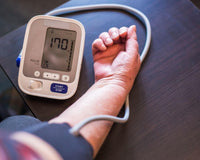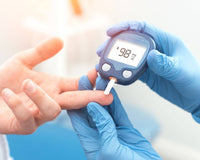Irbesartan is a prescription drug available as the brand name medication Aprovel. it is useful in the treatment of high blood pressure and related conditions. In the following short article, we highlight the dosage, side effects, warnings and interactions of irbesartan. We also answer the common questions how does irbesartan work and what is irbesartan used for. Read on to discover more about this prescription medication that relaxes veins and blood vessels.
About Irbesartan
Irbesartan is a prescription medication used to treat high blood pressure and protect the kidneys from damage caused by diabetes. Sometimes referred to by its popular dosage of irbersartan 300mg, this medication can be obtained as the brand name drug Avapro.
How Does Irbesartan Work?
Irbesartan belongs to a class of medications known as angiotensin II receptor blockers. These drugs work by blocking substances in the body that cause blood vessels to tighten. As a result, irbersartan helps relax veins and blood vessels, which improves blood flow and decreases a patient's risk of suffering a heart attack or stroke.
What Is Irbesartan Used For?
As a angiotensin receptor blocker medication, the primary goal of irbesartan is to reduce the risk of heart diseases and stroke by lowering blood pressure.

In some cases, it is also used to treat diabetic nephropathy caused by type 2 diabetes. This condition is a common complication of type 2 diabetes that often results in kidney and blood vessel damage.
Irbesartan Side Effects
Like most prescription medications, irbesartan does have a list of potential associated side effects. The most common side effects of irbesartan are relatively mild and should disappear within the first few days.
Common Side Effects
- Loss of appetite
- Increased thirst
- Nausea
- Feeling of warmth
- Fever
- Decreased urine output
- Dilated neck veins
- Headache
- Itching
- Rash
- Weakness
If these side effects are mild, they should disappear within a few days. If side effects persist, talk to your doctor or another healthcare professional.
Serious Side Effects Of Irbesartan
Some side effects of irbesartan more serious and may require medical attention. If you experience any of the following serious symptoms, call your doctor as soon as possible. Call 911 if you think your symptoms may be life-threatening.
The more serious symptoms of irbesartan may include the following:
- Chest discomfort
- Fast or irregular heartbeat
- Blood in the urine
- Bladder pain
- Black, tarry stools
- Bleeding gums
- Vomiting of blood
- Yellowing eyes
- Pinpoint red spots on the skin
Disclaimer: Here at Manifest Pharmacy, our goal is to provide you with the most relevant and current information. However, because drugs affect each person differently, we cannot guarantee that this information includes all possible side effects. This information is not a substitute for medical advice. Always discuss possible side effects with a healthcare professional who knows your medical history.
How To Take Irbesartan
Take irbesartan as directed by your healthcare professional. In most cases, it is recommended that you take irbesartan once a day at the same time each day. Your doctor may suggest that you take your first dose right before bedtime.
Initial doses of irbesartan can make some patients slightly dizzy. This dizziness should fade away over the course of a few days. If you still feel dizzy two weeks after taking irbesartan, call your doctor.
Irbesartan Dosage
Irbesartan is available as an oral tablet at strengths of 75mg, 100mg, and 300mg. Your dosage for irbesartan can vary depending on many factors, including the following:
- Your age
- Your weight
- Severity of condition
- Your current blood pressure
Dosage For High Blood Pressure
Adult: At first, 150mg per day. Dosage may be increased but should not exceed 300mg per day.
Dosage For Diabetic Nephropathy
Adult: At first, 300mg per day. Dosage may be increased but should not exceed 450mg per day.
Irbesartan Warnings
Irbesartan comes with several warnings; contact your doctor if you have any questions about a specific warning of irbesartan.
Black Box Warning
Irbesartan has a black box warning because it can harm or end pregnancy. A black box warning is the most serious cautionary message issued by the FDA. Do not take irbesartan while pregnant.
Interactions Of Irbesartan
Irbesartan tablets can interact with other medications, foods, and products you intake. This can be harmful or prevent the drug from working properly. Talk to your doctor if you currently take another medication and plan to start taking irbesartan. The most common interactions of irbesartan include the following:
Blood Pressure Drugs
Taking other blood pressure medications at the same time as irbesartan can result in dangerously low blood pressure and various kidney problems. Do not take irbesartan in conjunction with any of the following medications:
- Valsartan
- Losartan
- Enalapril
- Lisinopril
- Captopril
Non-steroidal Inflammatory Drugs
Taking irbesartan with nonsteroidal anti-inflammatory drugs (NSAIDs) can increase your risk of kidney damage or infection. Your risk may be higher if you’re a senior, take a diuretic, are dehydrated, or already have poor kidney function.
Drugs That Increase Potassium Levels
Many drugs that increase the potassium content in your blood and body are known to interact negatively with irbesartan. Taking these medications simultaneously can flood your body with potassium, potentially resulting in vomiting, chest pain, and muscle weakness. Do not take irbesartan along with any of these potassium-related products:
- Amiloride
- Triamterene
- Potassium supplements
- Salt substitutes that contain potassium
Summary
Irbesartan is a prescription drug available as the brand name medication Aprovel. It is useful in the treatment of high blood pressure and related conditions. As a angiotensin receptor blocker medication, the primary goal of irbesartan is to reduce the risk of heart diseases and stroke by lowering blood pressure.








